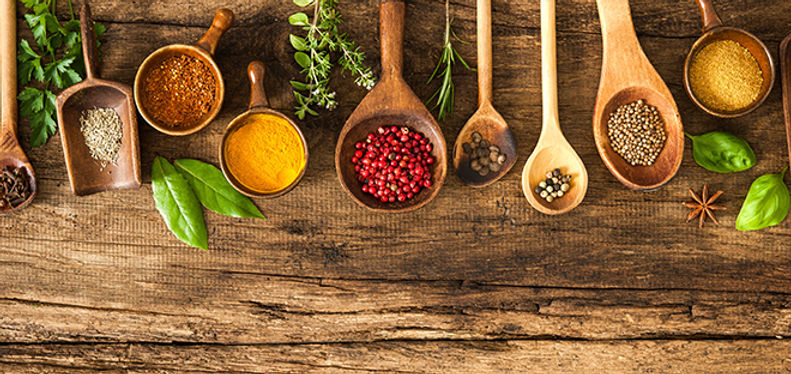2021 Sustainability Goals for Rhode Island
CITIZEN FOOD: SPRING 2021
Transformative Learning Experience
How can food be an avenue to empowerment, social justice, and (re) building community?



Written Commentaries
and
Mindful Menus
WRITTEN COMMENTARIES
Argumentative Essays

Written Commentary #1
What is the relationship between food and someone's cultural identity?
"There is sometimes a strong relationship between someone's cultural identity and the foods he/she eats, but sometimes that relationship is strained or lost for health reason, homelessness, personal choice, finances, not living with others who share your culture, or living far from home."
I chose as my three pieces of evidence my own lived experience, the Eddie Huang story, and stories of those people with food allergies and who are adopted and living with those who don't share their culture.

Written Commentary #2
How do our everyday choices about food impact the environment? How might we consider the environment in our food choices to make a meal more mindful?
"When we think about the foods we eat, we must think about the environment and our impact on it. For instance, do you know where your meat comes from? Did you know that the USDA reports that 99% of all meat, dairy, and eggs in the US comes from factory farms where animals are raised in CAFOs, Concentrated Animal Feeding Operations? Did you also know that industrialized agriculture is the leading contributor to fossil fuel emission in the US by far, even more than cars? Changing where you buy your meat and dairy, or switching to a plant based diet, could have a huge impact on the environment."
The three pieces of evidence I used was the USDA statistics on meat, diary, and egg production in the US, Michael Pollan's excerpt from his book, "Food Rules," on CAFOs and their impact on the environment, and Anne Lappe's excerpt from her book "Diet for a Hot Planet." Each resource pointed out how raising animals in CAFOs and consuming animals products produced in CAFOs is bad for the environment. This is because of the concentrated animal waste, high use of chemicals, and use of corn feed which creates monoculture crops that ruin the soil.

Written Commentary #3
What accounts for the different access communities have to affordable sustainable food, and how can we be more mindful about it?
"Food access inequity is a human rights issue and is caused by many things, like food deserts, lack of resources, and lack of education. Food deserts are areas where access to healthy, affordable food is not available and this is due to lack of grocery stores and supermarkets within walking distance or on public transit routes. It is also because healthy food is more expensive, requires more resources to cook, doesn't last as long as processed foods, and requires knowledge of how to cook it."
I used as my three pieces of evidence the USDA Resource Atlas to locate food deserts, the Food Policy and Food Bank paper, and The New York Times article, Giving the Poor Access to Healthy Food Doesn't Mean They'll Buy It.
MENUS
Mindful Meals

Blue's Bistro
Vegetable Lasagna
"Enjoy our grain, dairy, and gluten free lasagna. This meal is an interesting twist in traditional lasagna. Made with locally grown eggplant, tomatoes, broccoli, and spinach. Bursting with flavor in every bite. Support your local farmers market by eating today at Blue's Bistro with unbeatable prices."
I chose this meal because it is one of my favorite meals my mother makes, and it supports the local economy and the environment by shopping local and being dairy and meat free. It also increases food access by being affordable for all.

Lily's Pizza Place
Make Your Own Pizza
"Start with our homemade crust from organic whole wheat flour and cover it with our homemade, organic tomato sauces, pestos, and artisan local cheeses. Then top it off with our local, sustainably grown, organic fresh vegetables and herbs. Delight your taste buds and protect our environment."
I wrote this menu thinking about the environment. I chose locally grown foods to reduce transportation and carbon emissions. I chose organic, sustainably grown vegetables and herbs to support healthy soil and reduce chemical use.

Rocio's Cafe
Vegan Scalloped Sweet Potato Au Gratin
"Fresh hand-picked potatoes, cooked in creamy coconut milk and nutmeg, until golden then topped with savory roasted pecans. With this dish, you can devour the soft boiled naturally sweet potatoes, partnered with a creamy and crunchy factor from rich coconut and almond milk and crunchy pecans."
I picked this meal because it is part of my cultural identity. We eat lots of sweet potatoes in many different recipes. I also used fresh, hand-picked potatoes because they are better for the environment. I used coconut and almond milk due to my heritage and as a way to avoid diary and CAFOs. I used non-GMO, local, sustainably grown pecans because they are eco-friendly and heart and brain healthy.